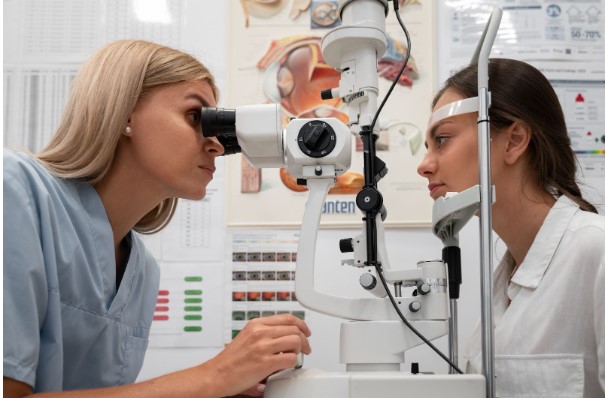Eyes are the most significant part of your body. They assist you in seeing the world, recognizing faces, reading, and performing daily activities. However, most individuals do not take care of their eyes until a problem arises. Eye checkups are just like body checkups, where it is important to check up on your body health, and similarly, it is important to check up on your vision in life.
Eye tests are not simply about verifying your need for glasses or not. They can be used at an early stage to spot eye diseases and keep track of vision changes as well as maintain healthy eyes into old age. In this article, we’ll explain how regular eye exams can protect your vision and why you should never skip them.
1. Early Detection of Eye Diseases
Numerous severe eye issues begin without any obvious signs. Such diseases as glaucoma, cataracts, macular degeneration, and diabetic retinopathy can gradually impair your vision without causing pain or any early symptoms. The damage can be permanent before the symptoms set in.
Routine eye wellness exams are used to identify issues early. The optic nerve of the eye is analyzed by the eye doctors, who utilize appropriate equipment to examine the rear portion of your eyes, as well as eye pressure. Early diagnosis implies early intervention, which can prevent or delay the disease before it leads to significant vision impairment.
2. Keeping Your Prescription Updated
When you already have a pair of glasses or contact lenses, it can be said that vision can change. You may begin to experience blurred vision, headaches, or loss of focus. These are indicators that you require an update in your prescription.
Frequent eye checks would ensure that you never miss the right prescription. Incorrect lenses may put a strain on your eyes and deteriorate your vision in time. You can comfortably see clearly every day with up-to-date glasses or contacts.
3. Protecting Children’s Vision
Eye tests are of particular importance to children. Children depend on sight to learn, read, and play. With uncorrected vision, it may impact their performance and confidence in school.
Regular eye examinations are used to detect such problems as nearsightedness, farsightedness, or lazy eye at a tender age. These conditions can be easily handled when they are treated early. Regular examinations will ensure that your child’s vision grows well and that he/she will be healthy in the future.
4. Monitoring Changes as You Age
Eyes change as we age. Some have reading problems, and others experience such problems as dry eyes or poor night vision. Periodical eye checks allow monitoring these changes and dealing with them.
In cases of adults aged above 40, eye checks are even more significant. It is the period when the risks of age-related diseases such as glaucoma and macular degeneration grow. Therefore, visiting your eye doctor regularly will ensure that your vision is good for many years to come because any signs can be identified early.

